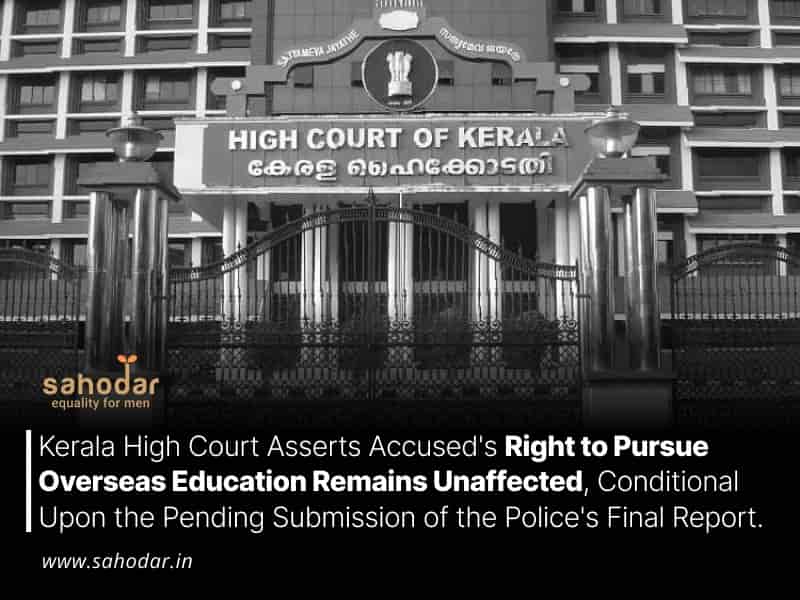Despite the absence of a finalized police report in an ongoing case concerning an individual accused of an offense under Section 498A of the Indian Penal Code, the Kerala High Court, on Thursday, granted leave for the accused to pursue higher education in Australia.
“…it is evident that, since the date of the surrender, he has been cooperating with the investigation and interrogation of the petitioner is already over. Apparently, no recovery is also to be affected. Therefore, I am of the view that, merely because the police have not submitted the final report, he need not be deprived of his right to go abroad to pursue his studies,” the Single Judge Bench of Justice Ziyad Rahman A.A. observed.
The petitioner had previously been granted anticipatory bail by the court, subject to specific conditions. One of the stipulations mandated the petitioner’s surrender to the investigating officer within a three-week timeframe. Condition (iv) further required the petitioner’s presence for an encounter with the investigating officer on a weekly basis until the final report was furnished, while condition (viii) specified that the petitioner could not exit the country without prior consent from the relevant court.
Subsequently, the petitioner sought the Magistrate Court’s permission to pursue studies in Australia, particularly at the Royal Melbourne Institute of Technology. The grounds for this request were founded on the petitioner’s earlier application for anticipatory bail, submitted during their visit to India for spinal cord surgery. Nevertheless, the Magistrate’s refusal was premised on its belief that such a grant would contravene condition (iv) of the anticipatory bail order, prompting the petitioner to bring the current case before the High Court.
In the subsequent deliberations, the High Court recognized the deletion of condition (iv) and, thus, its inapplicability to the matter at hand. Additionally, the Court took note of the petitioner’s demonstrated cooperation with the investigation, even in the absence of any recoveries. In these circumstances, the Court asserted that the petitioner’s right to travel to Australia should not be unjustly restricted solely on the basis of the police’s outstanding final report.

